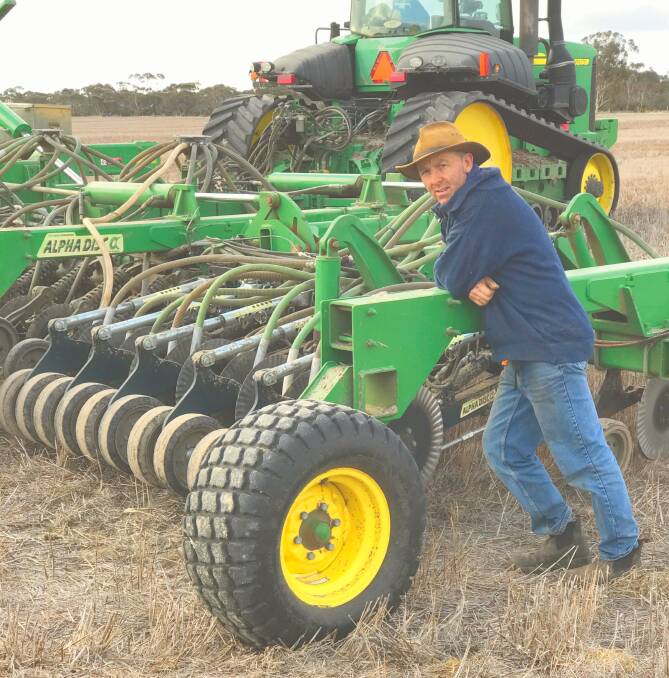
THE decision by the Federal government to take China to the World Trade Organisation (WTO) over its imposition of anti-dumping and countervailing duties of more than 80 per cent on Australian barley is unlikely to yield any quick result, with growers heading into 2021 with a 'business as usual' approach.
The choice to take the matter to the WTO was announced by Federal Trade Minister Simon Birmingham after extensive consultation with the grains industry.
"While Australia respects China's right, as with any nation, to undertake domestic investigations into anti-dumping matters, we do not agree with China's decision to impose anti-dumping and countervailing duties on Australian barley," Mr Birmingham said.
"We have continued to raise our concerns with China on numerous occasions, both bilaterally and through the relevant WTO committees.
"We remain disappointed that China has not engaged with Australia to address these concerns and now believe that calling in the independent umpire is the most appropriate course of action to resolve this dispute."
It is expected that the formal process of appeal could drag on for up to three years and while there will be early mediation between the two parties over the next few months, those discussions may or may not produce a result, so either way it isn't a quick fix for growers.
WAFarmers grain section president Mic Fels said progress had clearly not been made through other channels, making the WTO appeal the next sensible step.
"The government isn't stupid and they wouldn't be launching a WTO appeal if they had any doubts at all as to the strength of their position," Mr Fels said.
"It shouldn't be seen as an aggressive or offensive step, it's the government that is driving it and industry is just supporting them in doing so to protect our rights and stand up for our values."
WA Agriculture and Food Minister Alannah MacTiernan said clearly some action had to be taken.
"Any step that puts China and Australia in the same room and talking about how to resolve this issue is a positive step," Ms MacTiernan said.
"It is important that the Federal government takes steps to fix its relationship with China, and puts a stop to the unhelpful conduct of some of its backbenchers.
"The State government will offer any support needed to the Federal government in resolving this issue."
The WTO dispute settlement system is designed to allow members to settle their differences over trade matters in a respectful manner.
While that process is not perfect and will take longer than would be ideal, it gives independent and transparent scrutiny to issues, with valuable opportunities for the participation of other nations or third parties.
Australia has previously taken action against Canada with respect to the treatment of our wine and achieved a positive outcome and is currently involved in action against India on sugar.
Mr Fels said in the short-term, it was unlikely that the appeal would have any impact on WA barley growers.
"Hopefully the mediation process might lead to a more effective two-way dialogue and if that does happen, which is the best case scenario, potentially we could see a turnaround within a year with a suitable outcome," he said.
"But if it's not successful, we're looking at years for the legal process to take place, so barley growers in WA definitely aren't frantically trying to find seed at the moment.
"Realistically most people have already made their plans for next year in terms of what seed to keep and what crops to grow, so we'd need to see something concrete come out of this before we suddenly became bullish on planting barley."
Corrigin farmer Simon Wallwork planted 60pc of his 3700 hectare cropping program to barley this year and plans to increase that by 5-10pc in 2021.
"The grain marketers are already starting to diversify market options and while the price did come off a little bit this year, it wasn't as bad as anyone thought it would be," Mr Wallwork said.
"Barley yield really drives the profitability of that enterprise for us and from a risk management point of view, if we replace our barley with wheat, frost becomes a big issue.
"Overall the outcome wasn't as bad as expected when the tariffs were first announced in May - there was about a $40 per tonne drop in the malt premium but that has recovered quite well and since then other factors, like supply, have come into play."

